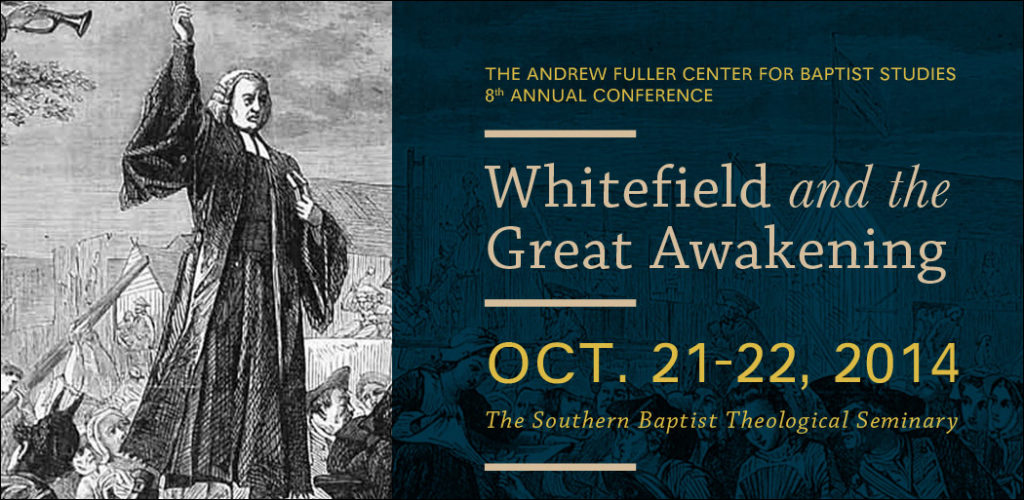George Whitefield, a model for today’s pastors
Why would people today want to study the life of George Whitefield (1714-1770)? He started no denominations, as the Wesley brothers did, and was best known for a preaching style that highlighted emotional responses. A traditional disdain for such a “manipulative” homiletic practice suggests he should be forgotten. Yet those who would take such…
Why would people today want to study the life of George Whitefield (1714-1770)? He started no denominations, as the Wesley brothers did, and was best known for a preaching style that highlighted emotional responses. A traditional disdain for such a “manipulative” homiletic practice suggests he should be forgotten. Yet those who would take such a view seem to forget that humans are emotional and rational beings. While we enjoy the emotional performance, we also catch onto the charlatan sooner or later and our ancestors would have never allowed Whitefield to “dupe” them for 30 years.
So what is it about him that intrigues people? What is it that motivates scholars to invest their time digging through libraries for old texts, sermons, and letters? In a word, it was the intangibles about his life that current scholars are just beginning to understand. Learning about the ministry of Whitefield has much to offer today’s culture.
Whitefield brought a message of unification to the world at a time in history where dissenting and secession was the norm. Even while the “democratization of Christianity” was being birthed, Whitefield reminded people of their genuine commonalities. These efforts are still needed as we live in a world where hatred and racism appear to gain ground.
Related: Learn more about George Whitefield at this years Andrew Fuller conference titled: Whitefield and the Great Awakening
Whitefield spent his life sketching out a middle ground and deftly staying there to encourage groups of differing sentiments, theological and political, to work together — or at least not hate one another. His most famous anecdote is worth recalling, probably delivered at least once in each locale he visited, and likely each additional time he visited. Undoubtedly, Whitefield would wax theatrical as he played the part:
Father Abraham, whom have you in heaven? Any Episcopalians?
No!
Any Presbyterians?
No!
Any Independents or Methodists?
No, No, No!
Whom have you there?
We don’t know those names here. All who are here are Christians…
Oh, is this the case? The God help us to forget your party names and to become Christians in deed and truth.
Indeed, too many denominations are indistinguishable when you consider their theology with just a bit of open-mindedness. Whitefield made peace with the Old Sides of Boston by acknowledging a different means of salvation than the new birth in 1745. Within a decade, even the Rector of Harvard, who had castigated Whitefield in the early 1740s, allowed him back to speak to the students.
From my view as a scholar of rhetoric, Whitefield has much to teach us about persuasion methods and eloquence. Ministers, who are responsible to preach a new, creative sermon each week, could learn much from Whitefield’s life.
Whitefield was a pioneer of mass media and PR campaigning, in the view of Frank Lambert. His methods were at least century ahead of any other major efforts at shaping public perceptions and marketing a product. Modern evangelists would do well to recognize and embrace Whitefield’s methods to promote their causes, methods which include a strict ethic and maintaining working relationships with a variety of denominational leaders.
Related: We need fools in the pulpit: The danger of sophisticated ministry
But really, could Whitefield’s life have made enough of a difference to make him worthy of study? Can anyone’s? Many scholars today might claim that your efforts to change the world, your agency, is ruled by deep structures of society that limit and constrain social activism, keeping the realm of agency fenced into prescribed boundaries. Others declare that reality is buried within layers of “hyperreality” fostered by mass media and advertisers that have overwhelmed the world, with PR teams becoming a “god” who speaks reality into existence. Their pessimistic view would discourage anyone who might seek societal change.
George Whitefield’s life and work overturn these philosophical views. Indeed, all should be encouraged by the possibilities suggested by this life — that a single person can inspire a group of people and inspire a social movement that can change the world forever. Whitefield showed us how that can be done, and portrayed the personal characteristics it takes to keep a movement together. Agency matters. You can make a difference, change your community, change your nation — even the world.
Whitefield was successful in changing the western world, leading a grass roots social movement that altered the future of England and America, and the rest of Europe to a lesser degree. By studying his efforts and methods, we are able to see a model of how such a great undertaking can be planned and implemented.
__________
Jerome Mahaffey is a professor of Communication Studies at Northern Arizona University where his teaching covers a broad range of communication courses that center upon communication structures and practices in organizations as well as gendered communication. His publications include The Accidental Revolutionary: George Whitefield and the Creation of America.
Join Jerome Mhaffey and many others at the Andrew Fuller Conference at Southern October 21-22. This year’s conference title is Whitefield and the Great Awakening. Learn more at: SBTS.edu/events



